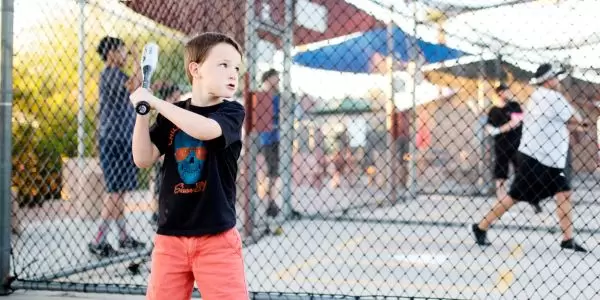Perfectionism in Youth Sports
We recently checked in with Jane, a tennis pro, and her son, Jeff, a Division I tennis player. Jane had a lot to say about the value of focusing on the “mental game.”
Why should you be interested in Jane’s story? Because it’s a classic example of a talented kid who’s his own worst enemy—because of his mental game. Read on to learn how Jane and Jeff conquered this challenge.
Early on in his tennis career, Jeff was a perfectionist, which helped his game in some ways and really hurt it in other ways.
The good news: He was motivated to work hard.
The bad news:
“I loved tennis so much, I wanted everything to be perfect,” he says. “I put so much pressure on myself to make everything right.”
If things weren’t going Jeff’s way, he would get very angry, Jane says.
“He would use so much of his energy and emotional energy trying to control himself. Usually by the second or third set he would run out of gas. It was almost like he wasn’t even trying. Like he had nothing left emotionally,” she says.
Rather than focusing on his out-of-control feelings, Jeff would talk to his coach about his technical game, focusing on everything he was doing wrong.
“It wasn’t the technical things that were hurting him,” Jane says. “It came to a point, about when he was 14, when he realized he had to spend more time on the mental side.”
That’s when things started to turn around for Jeff. He learned how to visualize a good game and to focus more on the positive, among other things.
In a very short time period, Jeff’s ranking jumped from fifth or sixth in Texas to first or second, Jane says.
“Once we realized it was more about preparing himself mentally and not physically, that’s when things turned around,” Jane says.
Tennis pros tend to focus on the more technical part of tennis because that’s the part they can control, Jane says. “But now, a lot of top programs are focusing on the mental side.”
Parents, here are some ideas for helping young athletes overcome perfectionism:
- Help your young athletes identify their high expectations
- Ask them to focus, like Jeff, on improving their game, rather than on winning every time and always being perfect
- Ask them to focus on manageable goals. A basketball player might focus on improving his free-throw percentage, for example. A soccer player might visualize stealing the ball.
Related Articles on Youth Sports:
- Helping Young Athletes Kick Perfectionism and Fear of Failure
- Helping Kids See the Good and Bad of Perfectionism in Sports
- How To Free Sports Kids From The Bonds of Perfectionism
*Subscribe to The Sports Psychology Podcast on iTunes
*Subscribe to The Sports Psychology Podcast on Spotify
Help Young Athletes Boost Confidence in Sports!
Every day, we receive letters from parents like you who want their children and teens to excel in sports. However, these parents can see fear, doubt, and frustration on the faces of their kids who struggle with the “inner” game of sports. But these parents have no idea how to help their kids overcome the worries, expectations and self-defeating thoughts that prevent their young athletes from feeling confident and successful.
You can benefit from our 15-plus years’ of work in sports psychology and sports parenting research. Now, you can tap into our secrets to sports success through a cutting-edge, 14-day program that helps young athletes overcome the top “mental game” challenges that sports parents face—and the top challenges young athletes face.


